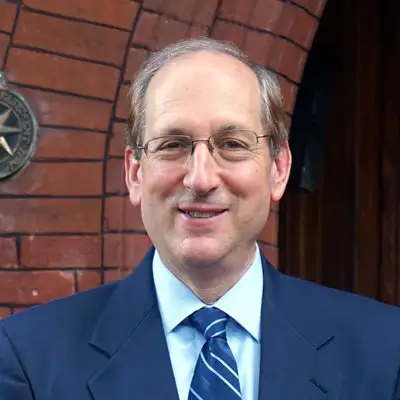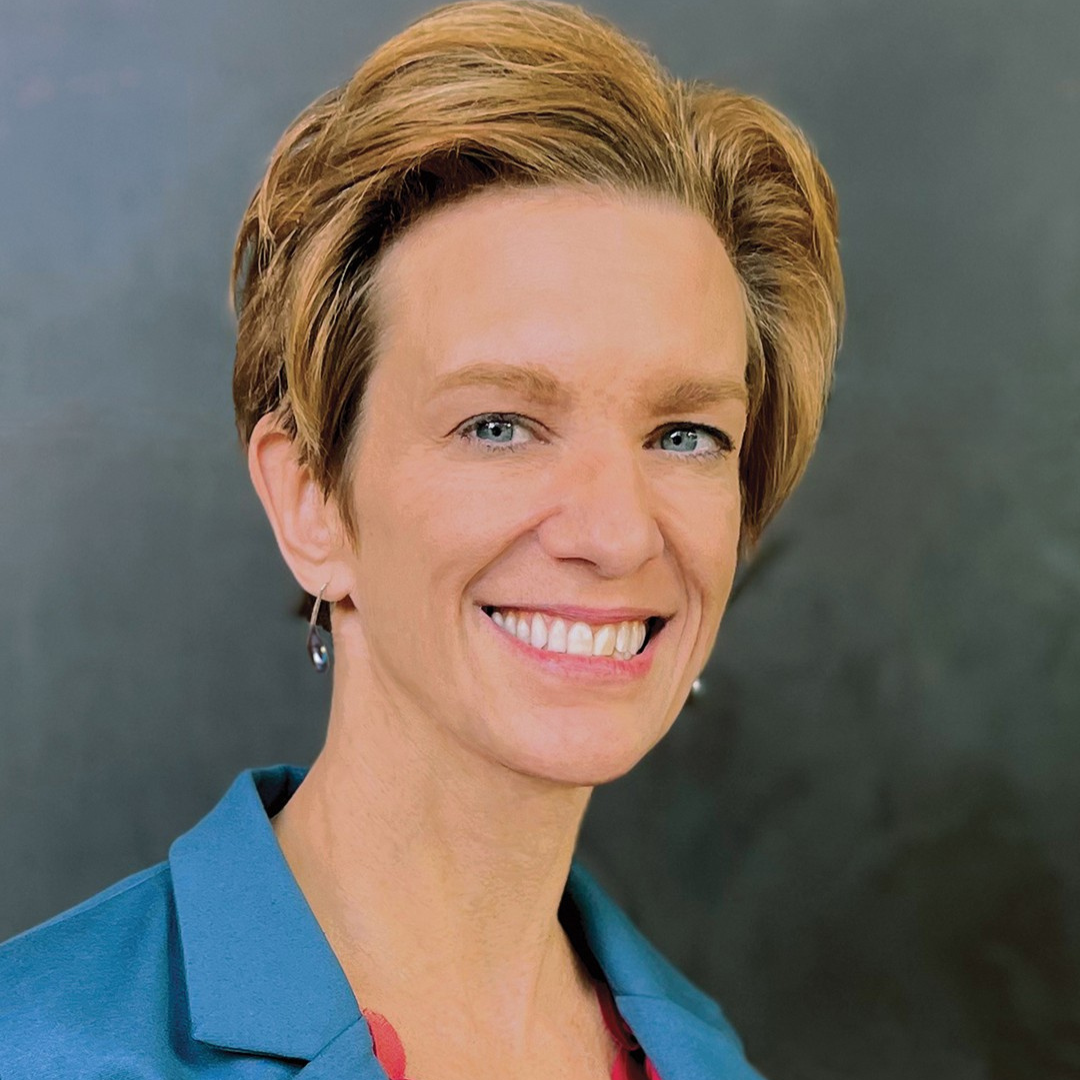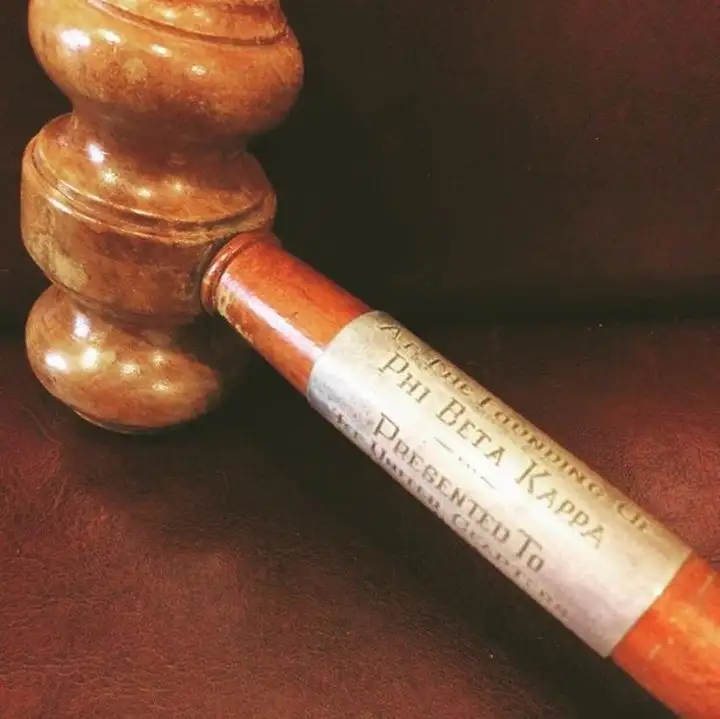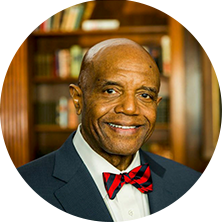
Frederick M. Lawrence, Secretary and CEO
Frederick M. Lawrence is the 10th Secretary and CEO of the Phi Beta Kappa Society, the nation’s first and most prestigious honor society, founded in 1776. Lawrence is a Distinguished Lecturer at the Georgetown Law Center, and has previously served as president of Brandeis University, Dean of the George Washington University Law School, and Visiting Professor and Senior Research Scholar at Yale Law School. He was elected to the American Philosophical Society in 2018 and the American Law Institute in 1999.
An accomplished scholar, teacher and attorney, Lawrence is one of the nation’s leading experts on higher education law, civil rights, free expression and bias crimes. Lawrence has published widely and lectured internationally. He is the author of Punishing Hate: Bias Crimes Under American Law (Harvard University Press 1999), examining bias-motivated violence and the laws governing how such violence is punished in the United States. Lawrence has testified before Congress concerning free expression on campus and on federal hate crime legislation. He frequently contributes op-eds to various news sources and has appeared on CNN, MSNBC and Fox News among other networks.
.png?width=1080&height=1080&ext=.png)
Amber Elaine Cox, Associate Secretary and COO
Prior to joining The Phi Beta Kappa Society, Amber Elaine Cox, MSW, served for nine years as Executive Director of the Council of Colleges of Arts & Sciences (CCAS), where she led the development of a new strategic plan, delivered over 30 leadership development programs for deans and chairs, established partnerships with several national and international higher education organizations and introduced innovative virtual programming during the COVID-19 pandemic. Previously, Cox spent a decade as Associate Director of the Big Ten Academic Alliance (formerly the Committee on Institutional Cooperation). She spearheaded several key initiatives, including a Mellon Fellows partnership with the Associated Colleges of the Midwest, an NSF ADVANCE Grant, and CourseShare, the Alliance’s signature program for delivering Less Commonly Taught Languages through video conferencing. She also led the Traumatic Brain Injury Research Project in collaboration with the Big Ten Athletic Conference and the Ivy League. Cox has held executive roles at the University of Illinois at Urbana-Champaign, the American Cancer Society, and the Alzheimer's Association. She earned a Master’s degree in Social Work (Policy, Planning, and Administration) from the University of Illinois and is a 2015 graduate of the Harvard Institute for Management and Leadership in Education. Based in San Antonio, Cox and her husband are empty nesters who enjoy world travel and foster pregnant, nursing, and orphaned stray dogs for area rescue organizations.

The Senate
The board of directors, called the Senate, is the permanent governing body of the Society. It consists of 25 members elected by the council for six-year terms. Senators may serve for up to two consecutive terms. The Senate meets annually in December and is responsible for implementing the policies adopted by the council and for carrying on the business of the Society. The executive committee of the Senate meets quarterly. There are several other committees of the Senate with specific charges, such as the committee on qualifications, which evaluates institutions applying for chapters.

Esther Jones, President
Esther L. Jones is the Associate Dean for Faculty Development at Brown University. She has served as Vice President for two years, and President for seven years at the Lambda of MA chapter. Jones has served on the national senate for nine years, serving on the Committee on Chapters for three years, and is currently serving on the Executive Committee and was elected Vice President of the Society in 2021. In these increasing levels of leadership within the society, Jones has succeeded in heightening student awareness of Phi Beta Kappa and the value of a liberal arts and sciences education, strengthening alumni ties and connections with the university chapter, and increasing opportunities to serve as a convener of society-related events that promote the love of learning as foundational to cultivating a meaningful life of consequence.
At the time of her election to the society at her alma mater, the Fisk University Delta of TN chapter, Jones was unaware of the prestige of the honor. A joint English and music/vocal performance major, she completed all course requirements in such fashion that by her senior year, there was room in her schedule to take some courses for fun: photography, drawing, and black psychology. While she enjoyed fulfilling the courses and requirements for both of her majors, the semester of freedom to feed her curiosity about interesting subjects for their inherent interest was the most memorable and rewarding experience of her undergraduate career. It is this spirit that is fostered, recognized, and promoted by the society—love of learning [as] the guide of life—that led Jones to a career in academia and in her commitment to the transcendent values of the society today.

Ronald Crutcher, Vice President
Dr. Ronald A. Crutcher served as the 10th President of the University of Richmond from 2015 to 2021. He is also President Emeritus of Wheaton College in Massachusetts. Prior to Wheaton, he was Provost and Executive Vice President for Academic Affairs at Miami University of Ohio. In August 2021, he was named a Senior Fellow at the Aspen Institute.
Throughout his career, Dr. Crutcher has actively promoted access, affordability, diversity, and inclusivity. His lifelong passion has been to ensure that colleges and universities provide an engaging education - with a liberal arts core - in which all students can thrive. He was founding co-chair of Liberal Education and America's Promise (LEAP), the Association of American Colleges & Universities' national campaign to demonstrate the value of liberal education. He writes and speaks widely on the value of liberal education, the democratic purposes of higher education, diversity and inclusion, and free expression on college campuses. He is a member of the Board of the Institute for the International Education of Students (IES Abroad), and a member of the Board of Governors of Bard College Berlin. A former Chair of the Board of the American Council on Education (ACE), he previously served on the boards of the Posse Foundation, the Association of American Colleges and Universiteis (AAC&U), the Fulbright Association; and he was Chair of the Association of Independent Colleges and Universiteis in Massachusetts.
